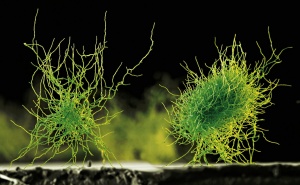We are pleased to invite you to the Skoltech Seminar. This week Prof. Kris Willems of KU Leuven (Belgium) discusses the why and how of his lifelong passion: “Moving Science Into Practical Solutions”.
When: March 12, 2015; 13.30 – 15.00
Where: Beijing-2 auditorium, China cluster, Skolkovo School of Management
SEMINAR ABSTRACT:
In addition to his career-long commitment to education Kris Willems has always been a passionate advocate of research valorisation, i.e. effectively mobilizing the available knowledge and resources with the objective of achieving within KU Leuven a distinctive position in the translation of basic research into industrial applications. This objective is in close alignment with the Flemish Government’s valorization policy, i.e. “to play an even more active role in the process of innovation, institutions should expand basic research programs, strengthen the link between basic research and technological innovation and develop the transfer of knowledge to third parties.”
Currently, his research career has resulted in the Metamine concept. Increasingly, biocatalysts are used in different industrial sectors, including the agriculture, feed, food, paper, biofuel, leather and textile industry. In addition, major applications of biocatalysts exist in the fine-chemistry, and the pharmaceutical, cosmetic and environmental biotechnology. In many of these sectors they provide an interesting and sustainable alternative for expensive chemical conversion processes, which often require harsh conditions and produce considerable amounts of waste or unwanted side products. In addition, the high specificity of enzymes can be exploited to perform transformations that are difficult or impossible to achieve with traditional chemical methods, and opens opportunities for new industrial processes. Therefore, established chemical processes are increasingly replaced by biotechnological alternatives.
Discovery of new biocatalysts of interest has long been based on the screening of microbial isolates cultured under standard laboratory conditions. Recently, genome mining and metagenomics have emerged as alternative and more powerful approaches as they allow exhaustive screening of genomes and metagenomes derived from environmental samples, respectively. These approaches have been fuelled by recent developments in next-generation sequencing technologies, the availability of gene and (meta)genome databases and high-throughput activity screening methodologies.
Additionally, dedicated bioinformatics pipelines are increasingly being constructed enabling efficient data analysis and target gene identification. Further, putative target genes can now be custom-synthesized, representing expression-host optimized versions of the original genes, by which problems currently encountered with heterologous gene expression can be circumvented. As such, these technological improvements now offer the opportunity to radically exploit (meta)genomics for biocatalyst discovery, characterization and valorization.
SPEAKER INTRODUCTION:
Professor Kris Willems, a biologist by background, is currently Dean of the Faculty of Engineering Technology at KU Leuven University, leading the development and growth of this multi-campus faculty following the integration of the engineering technology educational programs of the Association KU Leuven within KU Leuven.
He has more than 30 years of experience in leading academic and industrial organizations. His experience includes change and operational management, management of academic research and industrial projects; production and quality management.
Kris Willems graduated from the University of Gent as a biologist. He obtained a postgraduate degree in Tropical Marine Ecology at the Bermuda Marine Biological Station and in Marine Ecology at the Flanders Marine Institute. He received his PhD from the University of Gent. Additionally, he obtained a postgraduate degree in Environmental Science at the University of Antwerp and a postgraduate in Total Quality Management at the University of Hasselt.
He was a co-founder of the biotechnology program at the University College De Nayer responsible for both the strategic and administrative aspects of the new program.
As a researcher Kris Willems led his own research group ‘Process Microbial Ecology and Bioinspirational Management’ (PME&BIM) since 1994, which acquired national and international research funding as well as many industrial contracts. His main research interest is the microbial ecology of engineered environments and he is the author of several articles in multiple peer-reviewed journals.
Since 2011 Kris Willems is spearheading the “academization” process of seven FET campuses, including the incorporation of a full-fledged research component into the curriculum. He uses his valorisation management experience to establish and develop technology clusters, i.e. intercampus research partnerships within the departments of Group Science and Technology, with the objective of valorizing knowledge by collaborating with industry, the government and the non-profit sector, or by creating new companies”.
Beside his academic career Kris Willems has also acquired relevant business experience throughout different positions in industry. During the period 1992 – 1993 he joined the company Eurogenetics (Belgium) as a Chief Operation Officer and in 2002 became co-founder of the spin-off company BioART NV.
* The Skolkovo Institute of Science and Technology (Skoltech) is a private graduate research university in Skolkovo, Russia, a suburb of Moscow. Established in 2011 in collaboration with MIT, Skoltech educates global leaders in innovation, advances scientific knowledge, and fosters new technologies to address critical issues facing Russia and the world. Applying international research and educational models, the university integrates the best Russian scientific traditions with twenty-first century entrepreneurship and innovation.

